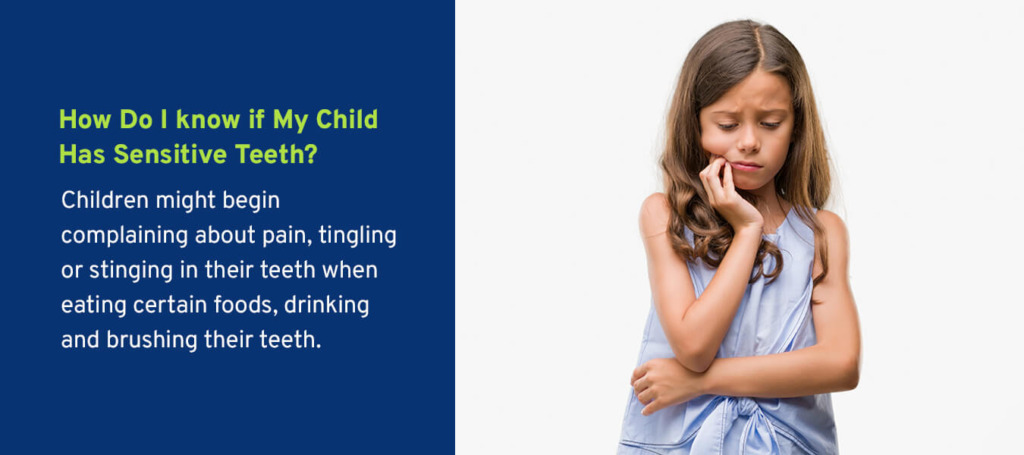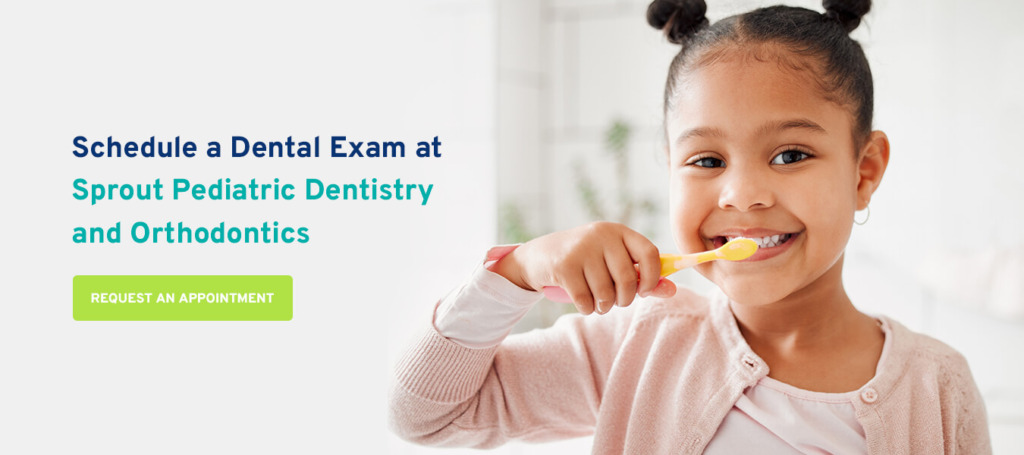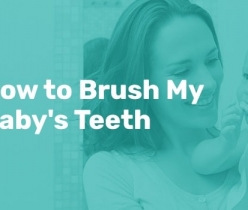Everyone is susceptible to tooth sensitivity, even children. When children experience tooth sensitivity, they may change their eating patterns due to the pain and tenderness they encounter eating specific foods. Tooth sensitivity is usually preventable and easy to treat, so you can help alleviate your child’s discomfort.
If your child shows signs of discomfort or pain when eating, there may be underlying reasons. So what causes teeth sensitivity in kids? How do you stop sensitive teeth naturally? We will answer some common tooth sensitivity FAQs below!
- What Is Tooth Sensitivity?
- What Causes Tooth Sensitivity in Kids?
- How Do I Know If My Child Has Sensitive Teeth?
- Can You Treat Tooth Sensitivity?
- Preventing Tooth Sensitivity in Children
What Is Tooth Sensitivity?
Tooth sensitivity occurs when you experience pain eating ice cream, drinking hot coffee or nibbling on your favorite sweets. It happens when your dentin — the spongy tissue inside your teeth — becomes exposed and open to stimulation.
Dentin is filled with microscopic tubules that lead to your teeth’s center, or pulp. When the enamel covering these tubules is removed, the tubules become more sensitive to stimuli. Brushing teeth and eating hot or cold foods, sugary treats and more can trigger tubules and result in pain and discomfort.
Enamel can get worn down for many reasons, including a chipped tooth, a cavity, a worn filling or gum disease.
What Causes Tooth Sensitivity in Kids?
Anyone can experience tooth sensitivity, but it is more common in adults between 20 and 40. Children are also likely to have sensitive teeth. If they have cracked a tooth or new teeth coming in, they may have exposed dentin that causes sensitivity.
There are six leading causes of tooth sensitivity in children:
- Brushing habits: Regular brushing is key to good dental health. If kids do not brush their teeth properly, they won’t remove food particles from their teeth properly, and particularly crunchy food might get stuck between teeth. Crunchy food can irritate their gums and teeth.
- Cavities and decay: Tooth decay and cavities can make your children’s teeth sensitive. Cavities are tiny areas of tooth decay on the tooth’s surface. Over time, these small areas can grow, making their way into the teeth and potentially exposing the delicate pulp. Even before a cavity reaches the pulp, tooth decay can weaken the enamel resulting in sensitivity to hot and cold temperatures.
- Erosion of enamel: Many foods and drinks can wear down the enamel of teeth. Sugary foods and acidic fruit juices are a few examples of food that can erode enamel. Grinding teeth and clenching jaws at night can also erode enamel. Once the enamel is removed, it leaves the sensitive dentin and pulp vulnerable to outside stimuli.
- Sinus infections: This might be a surprise, but sinus infections can make your kid’s teeth tender and sensitive. Fluid buildup and swelling create pressure in the sinuses, which sit just above the top row of teeth. The fluid can “squeeze” the nerves in those teeth, sending pain through the teeth and mouth.
- Fillings: Fillings can be used to stop tooth pains and sensitivity. They replace areas where decay has eroded the tooth enamel. While fillings are made of sturdy materials, they do not last forever. Over time, fillings can begin to crack or come loose, revealing the soft inner tooth. Fillings can get damaged or come loose when kids eat something gummy or crunchy.
- Adult teeth: There is a possibility that your child experiences tooth and mouth sensitivity as their adult teeth come in. As the new teeth force out baby teeth, kids may favor one side of their mouth over the other until the old tooth is out completely. If pain and discomfort continue after the permanent teeth have come in, one of the other five reasons above might cause the sensitivity.

How Do I Know If My Child Has Sensitive Teeth?
Your kids will let you know if they have sensitive teeth. There are a few symptoms of sensitive teeth, and they are easy to spot. Children might begin complaining about pain, tingling or stinging in their teeth when eating certain foods, drinking and brushing their teeth. If they throw tantrums about eating certain foods or drinking beverages, especially if it is something they used to love, they might have sensitive teeth.
Watch closely when your kids are eating. Are they only using one side of their mouth to chew? Do they look like they are in pain when eating ice cream or chips? What about when they brush and floss their teeth? These can all be signs to look out for.
Can You Treat Tooth Sensitivity?
Absolutely! Tooth sensitivity is a common problem that many children experience. There are cases where tooth sensitivity can go away on its own, like when new teeth come or your kid has a sinus infection. In other cases, you will need to take steps to resolve the issue.
Here are a few steps you can take:
- Visit a pediatric dentist: A dentist can find the cause of the sensitivity and offer the proper treatment course. They can fix and try to reverse any damage caused by visible decay and cavities.
- Anti-sensitivity toothpaste: Find an age-appropriate anti-sensitivity toothpaste designed to tackle tooth sensitivity. Ensure you read the labels as some anti-sensitivity toothpaste is not recommended for kids under 12. If you are struggling, you can always ask your kids’ orthodontist.
- Fluoride mouthwash: Fluoride mouthwash can help remineralize tooth enamel. Remember that fluoride mouthwash is only recommended for children older than six.
- Soft-bristle brushes: Some kids are so eager to brush their teeth they might be brushing too hard and wearing down enamel. Swap out their toothbrush for one with softer bristles and see if there is any change in their pain.
- Fillings: They can cover any spots where the enamel on the biting surface of teeth has been worn away. Fillings are one of the most common methods used to treat sensitive teeth.
There are several home remedies that you can try to treat either the cause of teeth sensitivity or the pain itself. Discuss these options with your child’s orthodontist and see if they can be used as part of a treatment plan.
Preventing Tooth Sensitivity in Children
The good news is you can prevent tooth sensitivity. Taking preventive measures helps ensure your children won’t experience tooth sensitivity soon.
Here are 10 easy ways to prevent tooth sensitivity:
- Establish good dental hygiene by flossing once a day and brushing twice a day.
- Use a softer toothbrush.
- Invest in an electric toothbrush with a timer and pressure sensor.
- Get a new toothbrush every two to three months or sooner if it is visibly worn.
- Limit the amount of sugary and acidic food and drinks your child has.
- Drink water with fluoride in it.
- Encourage kids to drink from a regular cup as soon as possible. Drinking from a sippy cup can cause liquid to collect around their teeth.
- Get a mouthguard if your child grinds their teeth at night.
- Teach your kids to rinse out their mouths after eating, particularly if they eat sugary or acidic food.
- Visit a pediatric dentist regularly.

Schedule a Dental Exam at Sprout Pediatric Dentistry & Orthodontics
If you are concerned that your child may be experiencing tooth sensitivity, Sprout Pediatric Dentistry & Orthodontics is here to help you. Our team of pediatric dentists will be able to guide you through every step of identifying and treating the cause of any sensitivity your child is feeling. Book an appointment today!

Dr. Dana grew up in Portland and went to Temple University in Philadelphia, PA for dental school. She then moved to Anchorage, AK for her residency in Pediatric Dentistry. Dr. Dana takes a holistic approach to pediatric dentistry & is able to use her own parenting experience to sympathize and understand each family’s unique dynamic.



